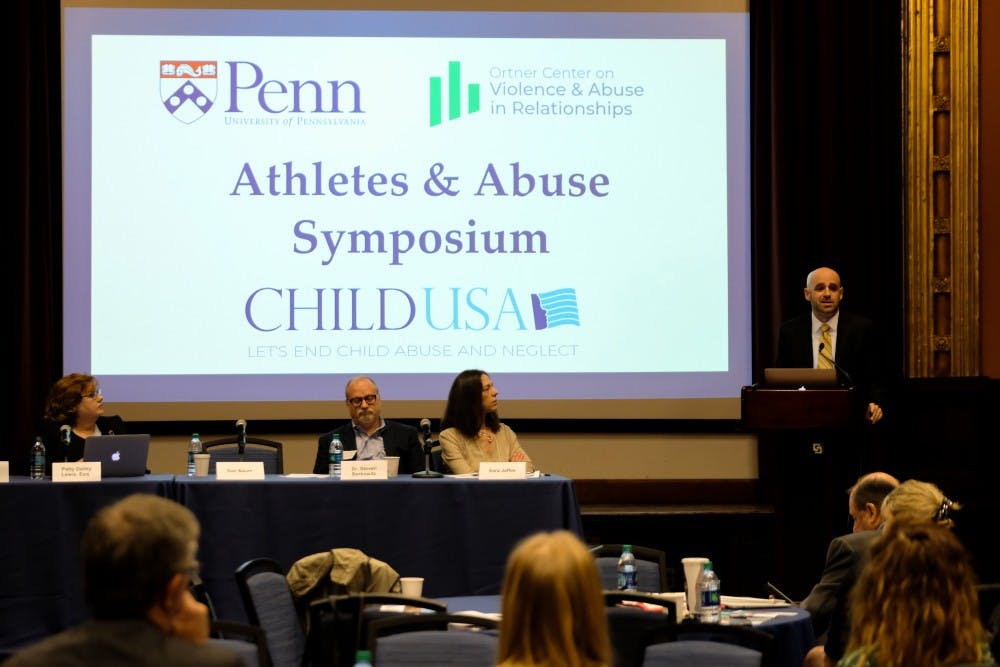
In the wake of the Larry Nassar scandal in USA Gymnastics, Penn hosted a symposium on Wednesday on athletes and abuse. The day-long event featured panels discussing the sexual abuse of athletes from children to Olympians and every level in between.
Penn partnered with CHILD USA and the Ortner Center on Violence and Abuse in Relationships to bring in a number of high-profile speakers to share their perspectives on the subject.
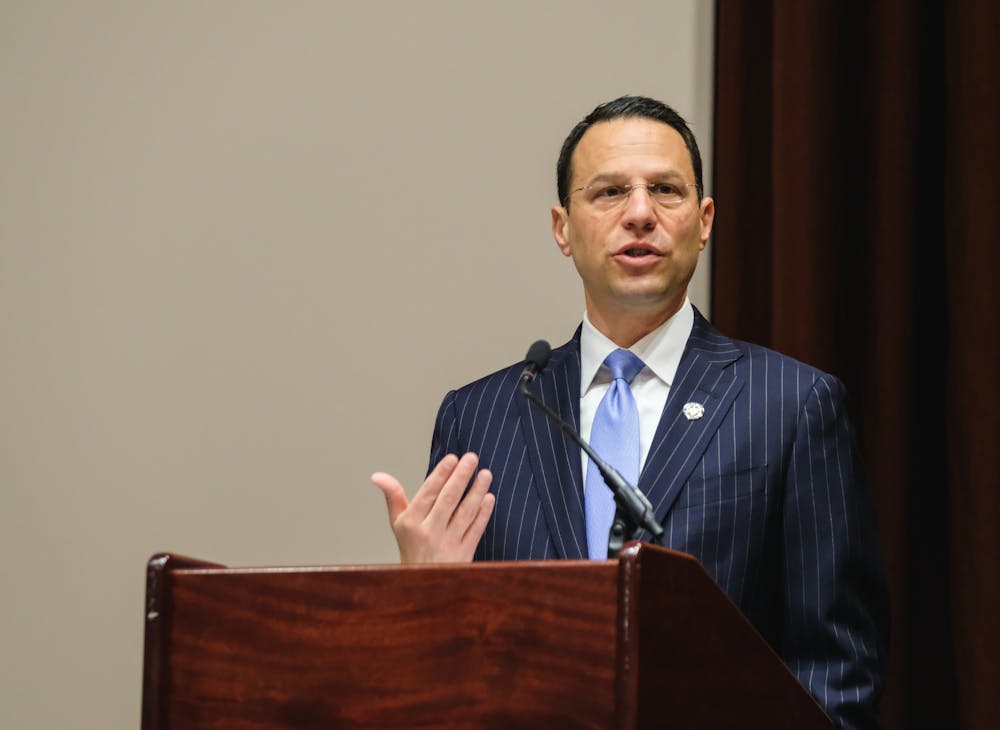
Among those speaking at the first symposium of its kind were Pennsylvania Attorney General Josh Shapiro, former NFL player and current Wharton MBA student Justin Tuck, and Olympic gold medalist Dominique Moceanu.
Many of the speakers throughout the day tended to echo similar points — namely, that the issue of the abuse of athletes is a pressing one that must be addressed head-on with open and honest dialogue. Many also added thoughts on their distaste for the stigmatization of speaking about sexual assault.
“This is an issue that thrives in darkness,” Chris Newlin of the National Children’s Advocacy Center said during one session.
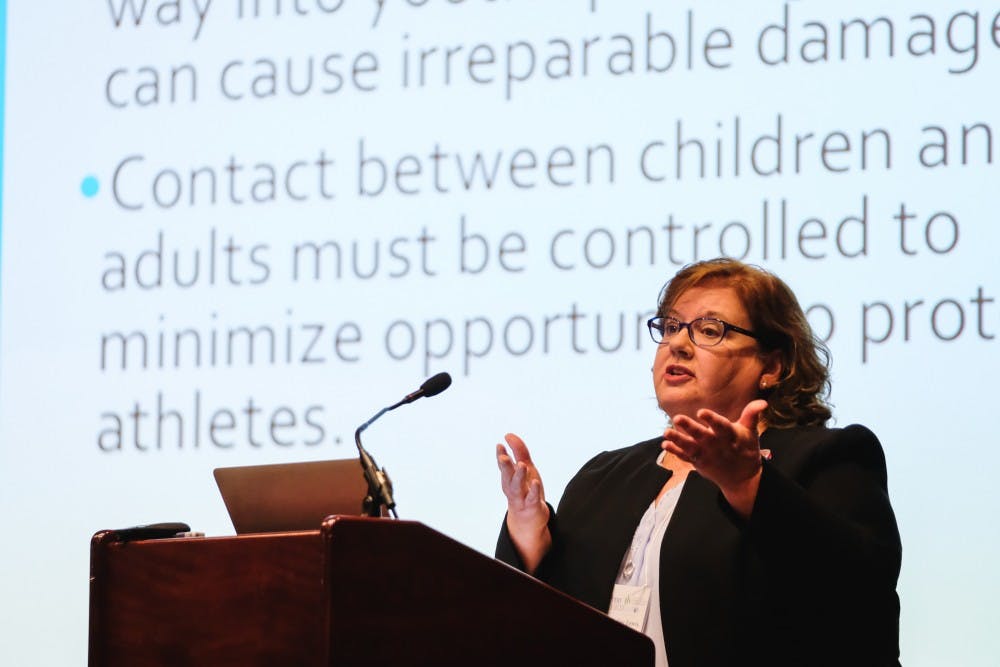
“Once we leave this room, we have to keep talking about it,” echoed Patty Dailey Lewis of the Beau Biden Foundation to a room mostly full of middle-aged adults with some connection to the cause.
A number of Penn administrators — including Associate Athletic Director Kevin Bonner and Senior Associate Athletic Director for Intercollegiate Programs Rudy Fuller — were in attendance for the college-centric portion of the symposium.
In that session, panelists shed light on a number of important topics for college students and administrators. Ann Corker, a researcher at the University of Kentucky, presented findings on the promise showed by engaged bystander programs, where training student-athletes how to be an active bystander correlated with a 25 percent decrease in sexual assaults over four years, including a 36 percent drop in “too drunk to consent” sexual assault cases. A representative of Penn Athletics in the audience noted that Penn’s implementation of other related training programs have been important in educating athletes on the options and resources available to them in instances of sexual assault.
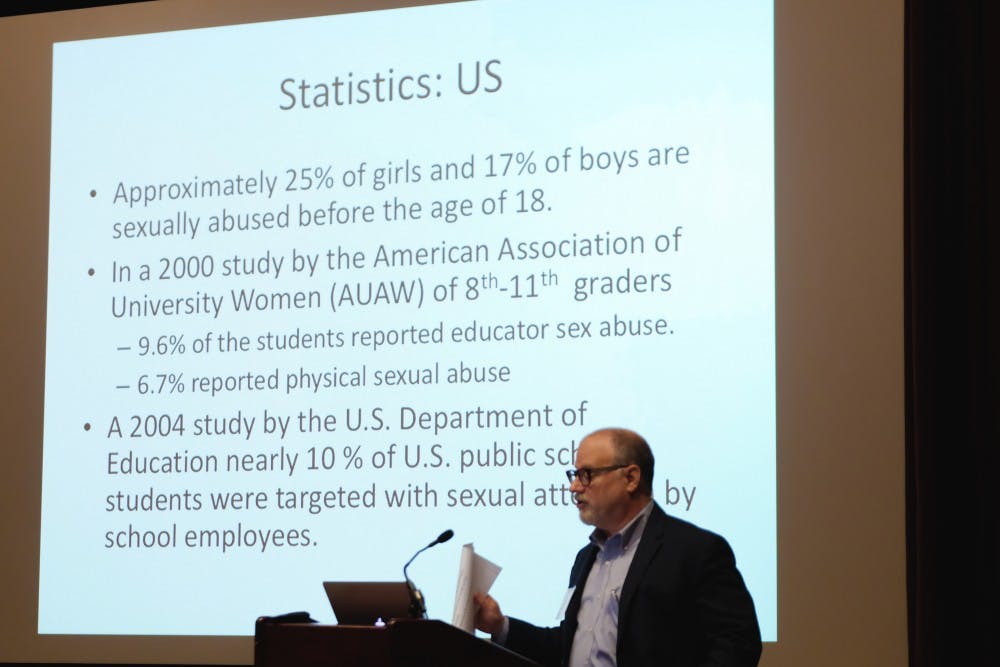
Corker’s additional findings that alcohol and sexual assault share an intertwining relationship seemed to be in line with the recommendations of Penn’s recent task force addressing sexual assault on campus.
Another point emphasized throughout the symposium was the disproportionate rate of sexual assaults for ethnic minorities and LGBTQ student-athletes. Penn professor Kathleen Brown noted how these disproportionate rates must be addressed, while also expressing that the effects of sexual assault live on with survivors for a lifetime.
But Penn, along with other NCAA member schools, are working to increase bystander education and reporting rates while decreasing incidents of sexual assault across all categories. Now, each NCAA member school’s president, Title IX coordinator, and athletic director must all sign a document acknowledging they understand NCAA rules and regulations regarding athlete abuse and are training staff and athletes alike to reduce sexual assault on campus.
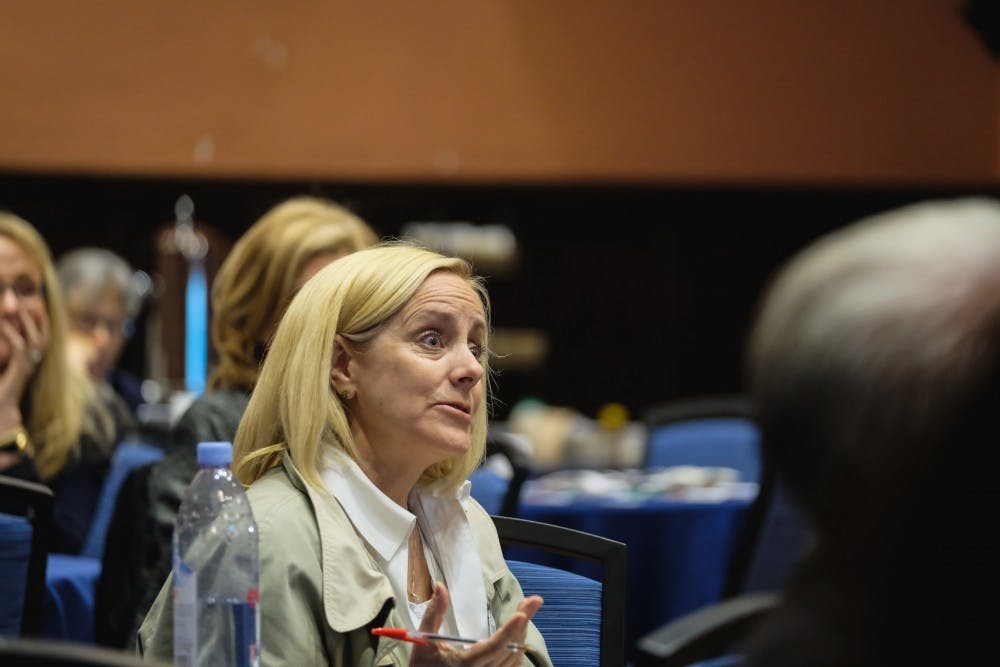
“I learned a lot about the measures being taken to protect athletes and children from sexual and physical abuse,” said Penn women’s basketball manager Jameira Johnson, who is spending her summer working with CHILD USA and was the only student-athlete in attendance for the college-centric portion of the seminar. “The speakers were so influential and passionate about protecting the rights of adolescent athletes, adult athletes, and children overall.”
Johnson continued to note that this summer, she would be working on a new commission founded by Penn professor and CHILD USA CEO Marci Hamilton to investigate the institutions and individuals enabling the sexual abuse of athletes by Nassar.
Along with the symposium, such a commission represents a newfound commitment to combating the abuse of athletes. If all of the speakers on Wednesday got their way, the conversation will be helped along, as the NCAA and its member schools inch toward progress.

The Daily Pennsylvanian is an independent, student-run newspaper. Please consider making a donation to support the coverage that shapes the University. Your generosity ensures a future of strong journalism at Penn.
Donate



